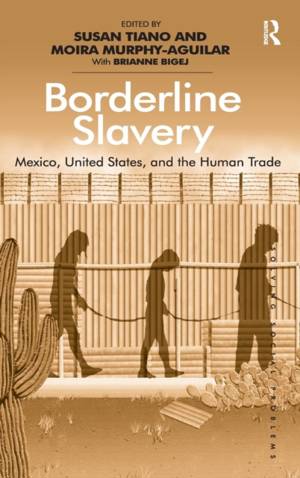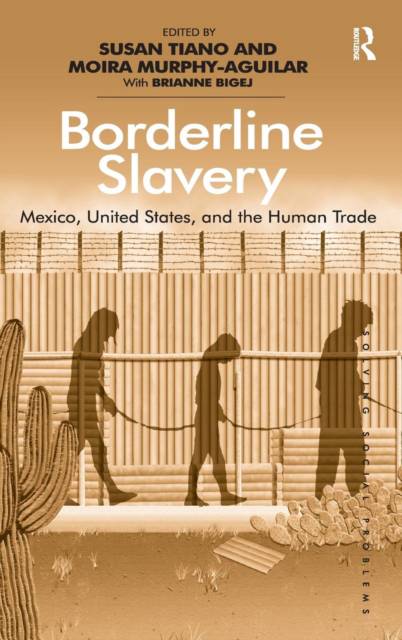
- Afhalen na 1 uur in een winkel met voorraad
- Gratis thuislevering in België vanaf € 30
- Ruim aanbod met 7 miljoen producten
- Afhalen na 1 uur in een winkel met voorraad
- Gratis thuislevering in België vanaf € 30
- Ruim aanbod met 7 miljoen producten
Zoeken
Borderline Slavery
Mexico, United States, and the Human Trade
€ 209,45
+ 418 punten
Omschrijving
Exploring human trafficking in the US - Mexico borderlands as a regional expression of a pressing global problem, Borderline Slavery sheds light on the contexts and causes of trafficking, offering policy recommendations for addressing it that do justice to border communities' complex circumstances. This book focuses on both sexual and labor trafficking, proceeding thematically from global to regional levels to provide an empirically grounded, theoretically informed, and policy-relevant approach, which examines the problem through the eyes of scholars and researchers from various fields, as well as journalists, public officials, law enforcement personnel, victims' advocates and NGO representatives. Discussing the multinational networks, global economics, and personal motives that fuel a multibillion dollar trade in human beings as cheap labor, Borderline Slavery suggests future directions for effective policies and law enforcement strategies to prevent the advance of human trafficking. As such, it will be of interest to both policy makers and scholars across the social sciences working in the fields of migration, exploitation and trafficking.
Specificaties
Betrokkenen
- Uitgeverij:
Inhoud
- Aantal bladzijden:
- 298
- Taal:
- Engels
- Reeks:
Eigenschappen
- Productcode (EAN):
- 9781409439684
- Verschijningsdatum:
- 28/10/2012
- Uitvoering:
- Hardcover
- Formaat:
- Genaaid
- Afmetingen:
- 156 mm x 234 mm
- Gewicht:
- 594 g

Alleen bij Standaard Boekhandel
+ 418 punten op je klantenkaart van Standaard Boekhandel
Beoordelingen
We publiceren alleen reviews die voldoen aan de voorwaarden voor reviews. Bekijk onze voorwaarden voor reviews.










